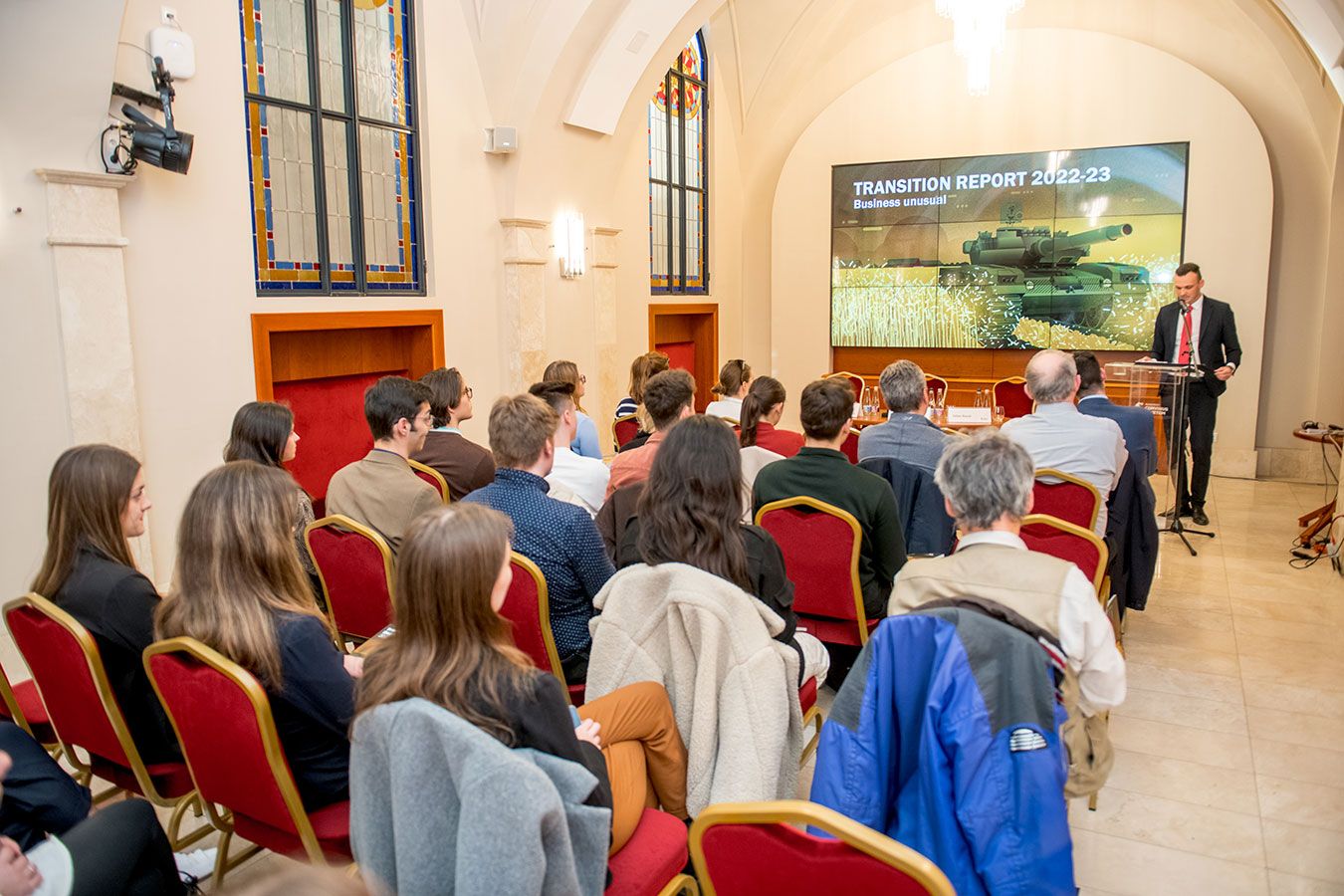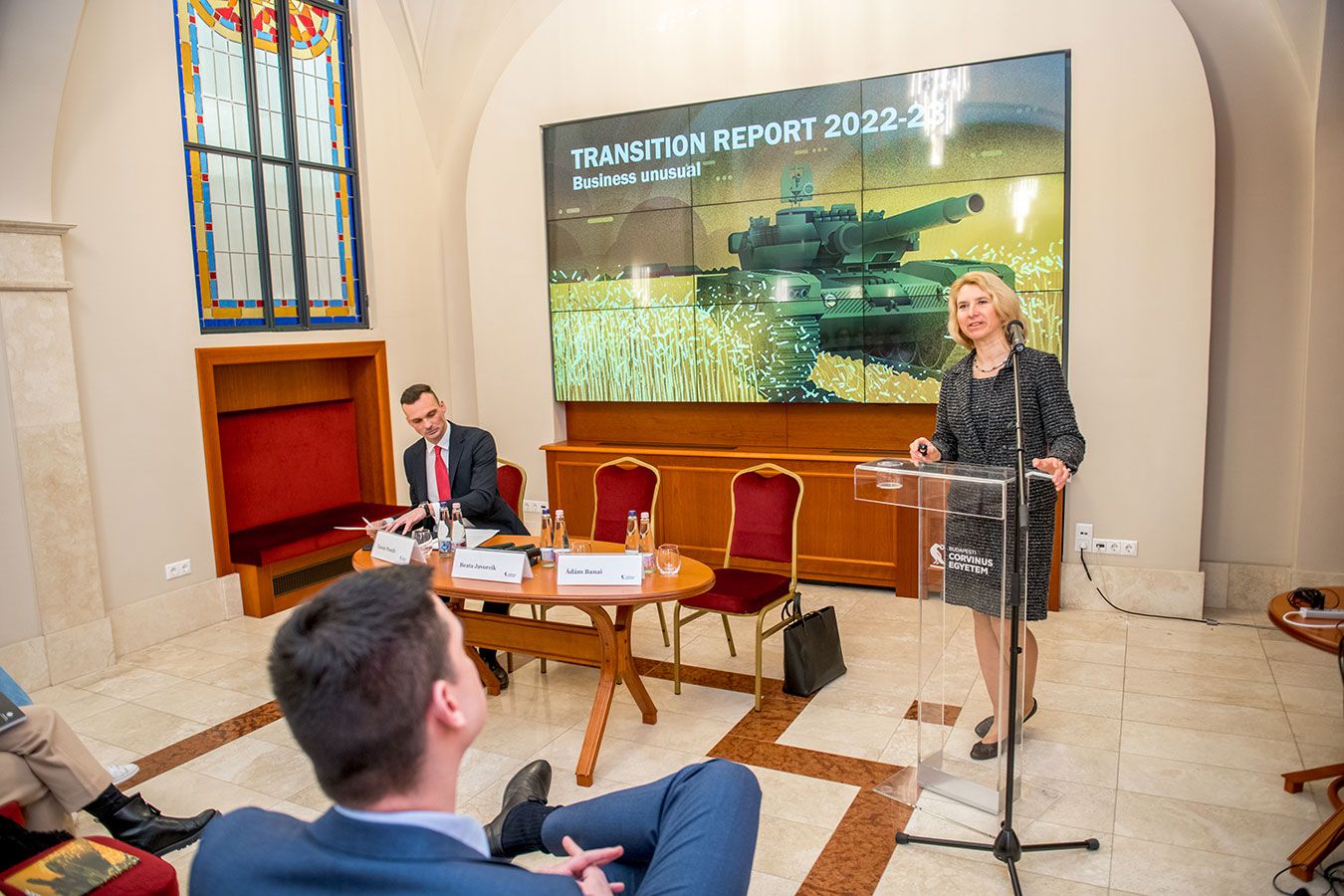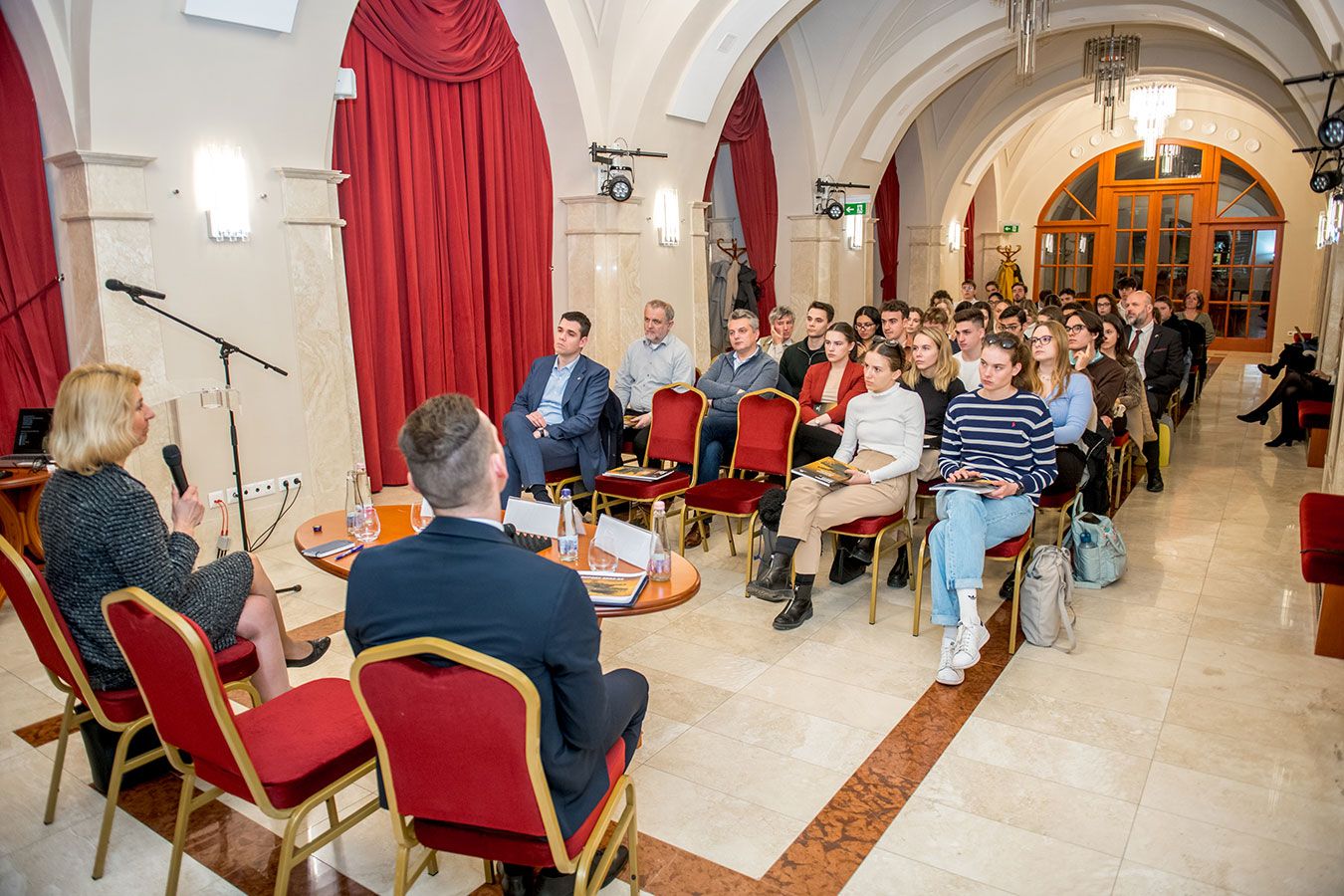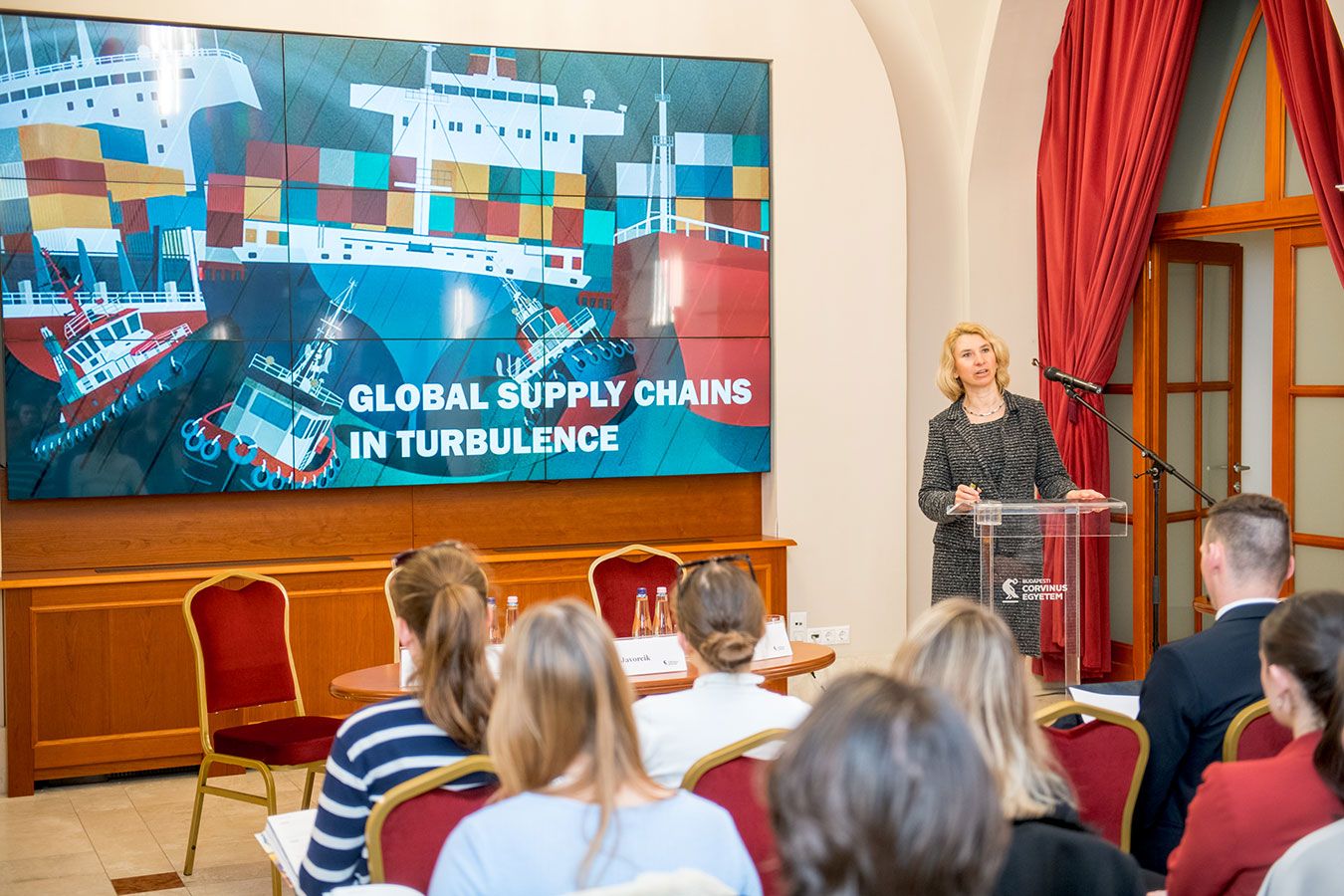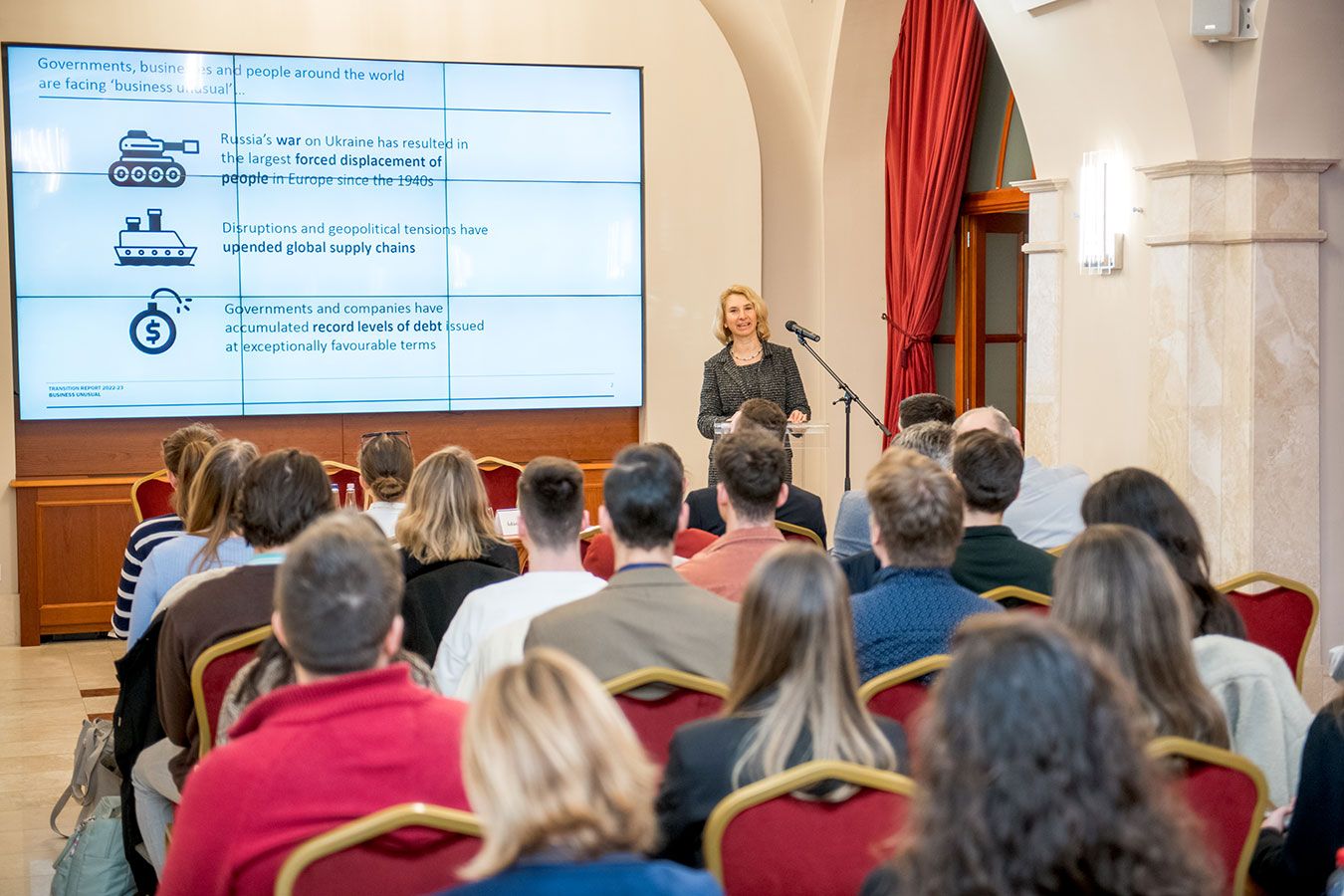“Wars leave deep scars” – The new EBRD Transition Report 2022-23 was presented at Corvinus University of Budapest

The Transition Report 2022-23 of the European Bank for Reconstruction and Development (EBRD) entitled “Business unusual” explores the economic trends of the past years in transition countries. Corvinus held an event on the report which was co-organized by the university and the Hungarian Economic Association’s (HEA) Monetary Policy Section on the 13th of March where Ádám Banai, the Co-President of the Monetary Policy Section welcomed Beáta Javorcik and the audience.
The report she presented is a biannual economic projection of the EBRD including 36 countries that are undergoing economic transition processes, including Hungary. It provides us perspectives on the tectonic changes in the region that were caused among others by the global pandemic, supply-chain disruptions, extreme weather, war in Europe, rocketing gas prices, high inflation, and debt burdens. The Polish professor presented the audience important findings of the four main topics that constitute the chapters of the report.
The economics of war and peace
If we look at the past 200 years, the number of wars is currently lower but among them, there are more civil wars since the ‘90s. The affected countries, like Ukraine, have to face a difficult economic situation. Professor Javorcik explained that 25 years after a war, only half of the countries reach the level of GDP per capita that they have reported before a war started on their ground. According to the report, foreign financing of wars has become more prevalent in the last decades, and domestic borrowing is one of the most important assets that countries utilize. We can also see an increase in public debt and a decline in population growth. “This burden continues after the war” – the researcher explained.
War, conflict and migration
Globally, 100 million refugees were registered last year. The Ukrainian war forced the displacement of many people too. According to the report, transition countries are highly affected by migration. As the researcher explained, middle-income and poor countries are hosts of a huge number of refugees. For example, 600.000 of Ukrainians have found employment in Poland during the last year. A key reason for this choice was that these refugees preferred a country where they had relatives or friends, and many of them wanted to stay closer to their home countries. The studies show that despite the growing numbers, the attitudes of citizens toward refugees have changed, compared to the migration waves of the last decade. “People have become much more positively predisposed toward refugees in the region” – the expert told us.
Global supply chains in turbulence
Transition countries are heavily integrated into global supply chains. Therefore, their disruption is a vital topic for the region. In the past couple of years, the Ukrainian war, the trade war between the US and China, the pandemic, and the blocking of the Suez Canal showed firms that supply chains are sources of risk. The researchers of the EBRD have conducted a sentiment analysis on sentences including the word ‘supply chain’ and found that it was associated more often with negative feelings than in the past decade. Despite all the incidents of the past years, few firms were willing to accept additional costs to optimize their supply chains. “The war changed this mindset. Firms have taken concrete actions to adjust their supply chains” – Beata explained.
Corporate debt and business dynamism
“This is the chapter about zombie firms” – that is how the professor introduced the last chapter of the report. Nowadays, firms are loaded up on depts in the region because they could borrow at ever lower interest rates in the past years. “This could become a ticking bomb because not all firms will be able to survive the growing inflation” – said the expert. Despite the circumstances, the number of bankruptcies is surprisingly low. The studies found that firms are often protected because state-owned or undercapitalized banks support them. “A zombie is a firm that has access to very cheap landing and only because of that it is able to survive”. According to the expert, the problem is that these firms trap capital labor ratio, thus, they hinder development. “Governments are fighting fires all over the world. The big question is whether they will be able to think in longer terms” – the professor explained.
The presentation was followed by a Q&A session where students and professors of Corvinus University asked the Chief Economist about international trade relations and the economic impacts of the current war. “Wars leave deep scars” – concluded the expert of the EBRD.
If you want to know more about these topics, you can read the report here.
